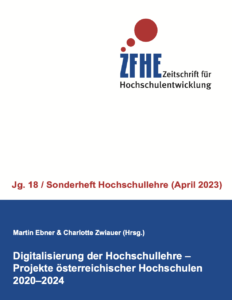 Issue 18(14) of our journal on emerging technologies for learning got published. Enjoy the readings as usual for free :-).
Issue 18(14) of our journal on emerging technologies for learning got published. Enjoy the readings as usual for free :-).
Table of Contents:
- Students’ Perception Towards Learning Massive Open Online Courses on Coursera Platform: Benefits and Barriers
- Investigation into Undergraduates’ Experiences of Social Presence in Online Learning
- Challenges of Extended Reality Technology in Higher Education: A Review
- Overcoming Integration Thresholds for Augmented Reality
- Study on the Impact of Gamified Teaching Using Mobile Technology on College Students’ Learning Engagement
- Continuous and Transparent E-Invigilation of E-Assessments
- The Impact of Artificial Intelligence-Based Virtual Laboratories on Developing Students’ Motivation Towards Learning Mathematics
- A Novel Method of Teaching Quality Monitoring and Evaluation from the Perspective of Educational Balance
- Evaluation of Project-based Teaching Quality Based on SBM-DEA
- Evaluation of Students‘ Communicative Language Ability and Difference Analysis in an Interactive Teaching Environment
- A Systematic Literature Review on Digital Transformation in Higher Education: Revealing Key Success Factors
- Critical Reflections on ChatGPT in UAE Education: Navigating Equity and Governance for Safe and Effective Use
- Process Evaluation for Diversified Academic Assessment Mechanism in Higher Education Institutions by Use of Data Mining
- The Effective Use of Online Resources in Improving Students’ English Grammar Skills in the EFL Classes at the Tertiary Level
- Elements of Algorithmic Thinking in the Teaching of School Geometry through the Application of Geometric Problems
- Evaluation of Online Learners’ Learning Performance Based on Fuzzy Borda Method
- Use of Big Data Technology for Network Classroom Teaching Quality Management
- Setting Up and Implementing ArcGIS to Work with Maps and Geospatial Data with Python for Teaching Geoinformation Systems in Higher Education
- A Proposed Framework for Human-like Language Processing of ChatGPT in Academic Writing
Nevertheless, if you are interested to become a reviewer for the journal, please just contact me 🙂 .

